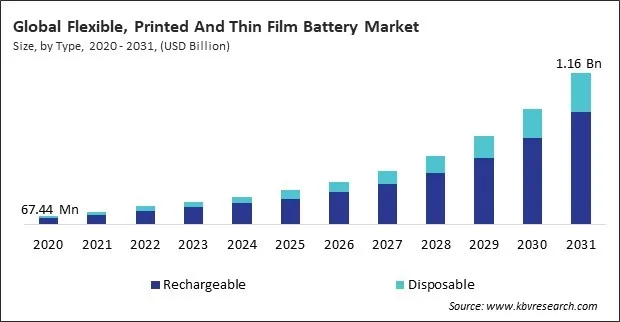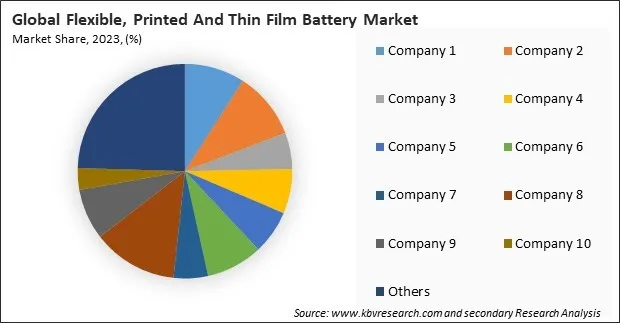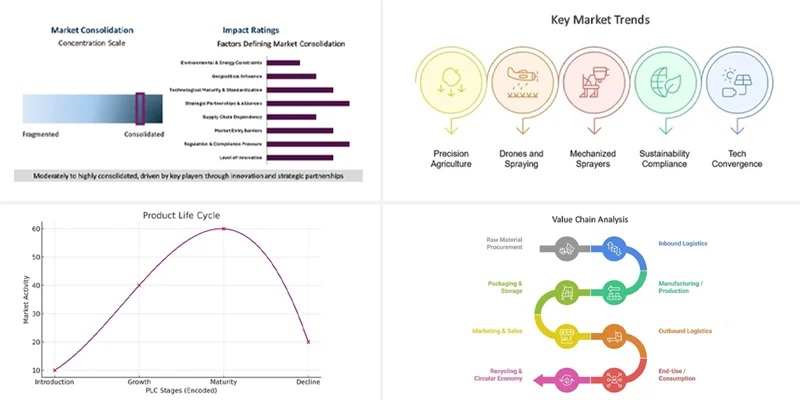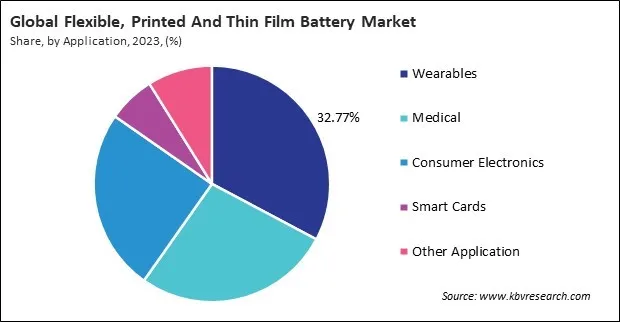“Global Flexible, Printed And Thin Film Battery Market to reach a market value of USD 1.16 Billion by 2031 growing at a CAGR of 27.1%”
The Global Flexible, Printed And Thin Film Battery Market size is expected to reach $1.16 billion by 2031, rising at a market growth of 27.1% CAGR during the forecast period.
The Asia Pacific segment recorded 49% revenue share in the market in 2023. The region’s dominance is driven by the rapid expansion of the consumer electronics industry, increasing adoption of wearable devices, and advancements in IoT applications. Countries such as China, Japan, and South Korea are at the forefront of battery innovation, with significant investments in research and development for miniaturized, high-performance energy storage solutions.

Wearable electronics, including smartwatches, fitness trackers, augmented reality (AR) glasses, and medical monitoring devices, are witnessing rapid adoption due to their convenience and advanced functionalities. These devices require ultra-thin, flexible, and lightweight power sources to maintain their compact form while ensuring seamless integration with user lifestyles. The rise of health-conscious consumers and advancements in biometric tracking fuel the demand for efficient and adaptable battery solutions. Therefore, rising demand for wearable electronics and smart devices drives the market's growth.
Additionally, Consumer electronics manufacturers focus on thinner, more portable, lightweight device designs, creating a demand for next-generation energy storage technologies. Smartphones, tablets, wireless earbuds, foldable displays, and smart cards require ultra-thin power sources that do not compromise energy output. While widely used, traditional lithium-ion batteries are often rigid and bulky, restricting design innovation in ultra-slim and flexible devices. In conclusion, the growing demand for compact and lightweight power solutions in consumer electronics is propelling the market's growth.
However, The production of flexible, printed, and thin-film batteries involves advanced manufacturing techniques such as roll-to-roll printing, nanomaterial deposition, and microfabrication, all of which require significant capital investments in research, development, and specialized equipment. Unlike traditional lithium-ion batteries, which benefit from well-established large-scale production, flexible batteries are still in the early stages of commercial adoption, leading to higher per-unit production costs. In conclusion, high initial production costs and capital investment requirements hamper the market's growth.

The leading players in the market are competing with diverse innovative offerings to remain competitive in the market. The above illustration shows the percentage of revenue shared by some of the leading companies in the market. The leading players of the market are adopting various strategies in order to cater demand coming from the different industries. The key developmental strategies in the market are Acquisitions, and Partnerships & Collaborations.


Based on type, the market is characterized into disposable and rechargeable. The disposable segment procured 23% revenue share in the market in 2023. Disposable thin film batteries are widely used in low-power applications such as medical patches, RFID tags, and smart packaging. Their lightweight design, ease of integration, and cost-effectiveness make them suitable for single-use and short-term applications. In the healthcare sector, these batteries are increasingly utilized in biosensors, drug delivery systems, and diagnostic devices, where long-term recharging is unnecessary.

On the basis of application, the market is classified into wearables, medical, consumer electronics, smart cards, and others. The medical segment recorded 27% revenue share in the market in 2023. The growing use of battery-powered medical devices such as pacemakers, insulin pumps, and implantable sensors has driven the demand for ultra-thin and biocompatible energy storage solutions. Flexible and printed batteries provide a reliable and lightweight power source for wearable medical monitors, drug delivery systems, and biosensors.
Free Valuable Insights: Global Flexible, Printed And Thin Film Battery Market size to reach USD 1.16 Billion by 2031
Region-wise, the market is analyzed across North America, Europe, Asia Pacific, and LAMEA. The North America segment witnessed 25% revenue share in the market in 2023. The region’s growth is attributed to the increasing adoption of advanced energy storage solutions in applications such as healthcare, smart packaging, and wearable technology. The presence of leading technology companies and research institutions focusing on battery innovation has played a crucial role in market expansion.
| Report Attribute | Details |
|---|---|
| Market size value in 2023 | USD 178.63 Million |
| Market size forecast in 2031 | USD 1.16 Billion |
| Base Year | 2023 |
| Historical Period | 2020 to 2022 |
| Forecast Period | 2024 to 2031 |
| Revenue Growth Rate | CAGR of 27.1% from 2024 to 2031 |
| Number of Pages | 197 |
| Number of Tables | 270 |
| Report coverage | Market Trends, Revenue Estimation and Forecast, Segmentation Analysis, Regional and Country Breakdown, Market Share Analysis, Porter’s 5 Forces Analysis, Company Profiling, Companies Strategic Developments, SWOT Analysis, Winning Imperatives |
| Segments covered | Type, Application, Region |
| Country scope |
|
| Companies Included | Blue Spark Technologies, Inc., Enfucell Oy, STMicroelectronics N.V., Panasonic Holdings Corporation, LG Electronics, Inc. (LG Corporation), Molex, LLC (Koch Industries, Inc.), NEC Corporation, Samsung SDI, Cymbet Corporation, and Robert Bosch GmbH |
By Type
By Application
By Geography
This Market size is expected to reach $1.16 billion by 2031.
Rising Demand For Wearable Electronics And Smart Devices are driving the Market in coming years, however, High Initial Production Costs And Capital Investment Requirements restraints the growth of the Market.
Blue Spark Technologies, Inc., Enfucell Oy, STMicroelectronics N.V., Panasonic Holdings Corporation, LG Electronics, Inc. (LG Corporation), Molex, LLC (Koch Industries, Inc.), NEC Corporation, Samsung SDI, Cymbet Corporation, and Robert Bosch GmbH
The expected CAGR of this Market is 27.1% from 2023 to 2031.
The Rechargeable segment led the maximum revenue in the Market by Type in 2023, thereby, achieving a market value of $870.3 million by 2031.
The Asia Pacific region dominated the Market by Region in 2023, and would continue to be a dominant market till 2031; thereby, achieving a market value of $586.2 million by 2031.
Our team of dedicated experts can provide you with attractive expansion opportunities for your business.

 Drivers
Drivers
 Restraints
Restraints
 Opportunities
Opportunities
 Challenges
Challenges
